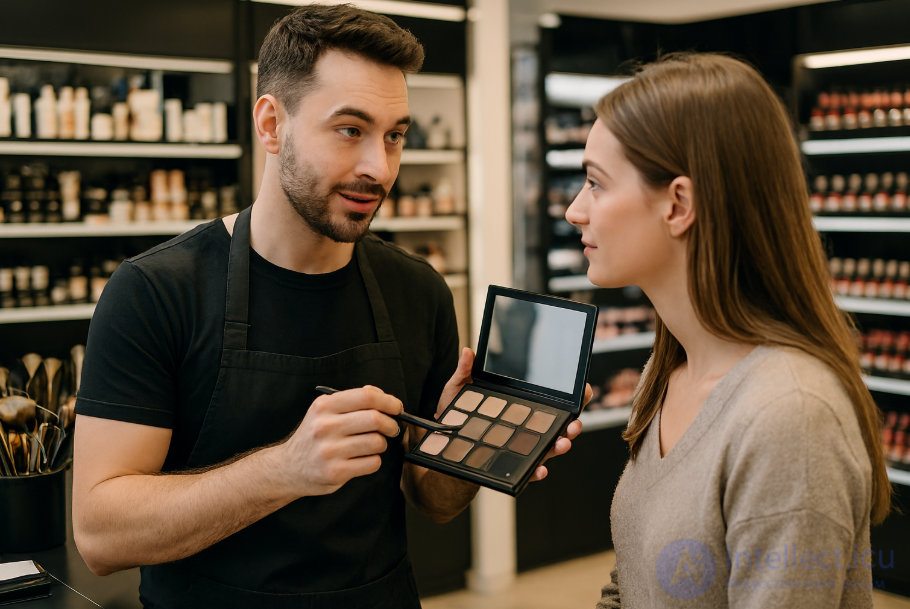Lecture
1. General characteristics of the profession
The makeup artist is an artist, but he paints not on paper, but on the face or on the body.

2. Official duties
A make-up artist is a person who understands creams, skin features, he not only knows how to do makeup, he is a professional in make-up. Makeup artists can most likely be called a make-up artist, that is, a cosmetics artist. Still, English terms are sometimes very capacious. Let us set aside such specific knowledge as knowledge of the psychology of color, the laws of composition and drawing. The main difference is that the results of the work of a cosmetologist are objective. There was a pimple - and there was no pimple, there were wrinkles or freckles - and now they disappeared without a trace. The work of a makeup artist may or may not like. The hours-long efforts of the master can be mercilessly washed away in five minutes along with the seemingly too pale foundation. In addition, the makeup artist should be, above all, an excellent psychologist. He must, for a very limited time, feel the client and offer her the best of what she is able to perceive. Here the makeup artist is lurking, perhaps, the main difficulty - the reluctance of the client to change their appearance. As a rule, it sounds like this: “I want to change everything, but so that nothing is noticeable.” Working with such a “closed” client is like walking on a tightrope: a step to the side is a fall. A drop of rouge of an unusual color - and the client runs in a panic to wash. Therefore, the make-up artist is obliged at first to be especially attentive to the client's taste, trying to gradually educate him. Neglecting the opinion of the client is the main mistake of novice masters. They are literally bursting with the desire to apply the knowledge that makeup artists have just received at school (there are now plenty of places where makeup is taught). They sincerely want to help, but not that help is to save the client from her own appearance! A bad or novice make-up artist uses the words “horrible eyebrows,” “full face,” “protruding cheekbones,” and so on, and ... provides an escape for the client, even if he is a thousand times right! A woman will not forgive such an assessment and certainly will not want to be attentive to the opinion of such a make-up artist. It is necessary to avoid imposing one’s own, even if competent, view on the appearance of the client, especially if she is not yet ready for radical changes in her appearance. A person is not fashionable and stylish can not be a makeup artist. Nobody will believe him. Appearance makeup artist must be either original or beautiful. Secondly, it is necessary to have refinement of manners, the ability to have an interlocutor to yourself - this is 50% of success. Pay attention to the manner of talking. After half an hour of conversation, it is easy to understand whether a person is erudite, whether he reads a lot, and understands fashion. If a person is not sociable, does not know how to dispose of himself, he will never become a famous makeup artist.
3. Qualification requirements
Schools, training centers, studios of image, make-up, stylistics.
Comments
To leave a comment
Professions and specialties
Terms: Professions and specialties